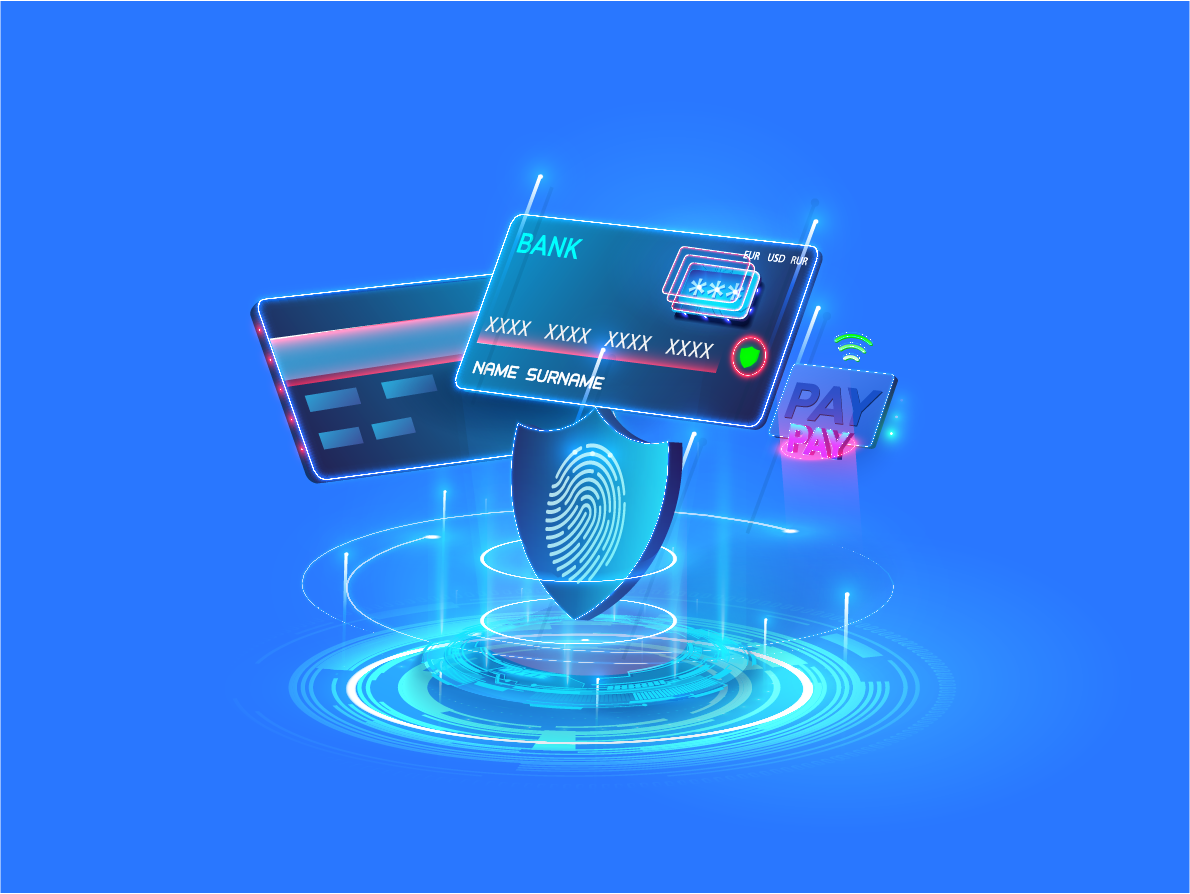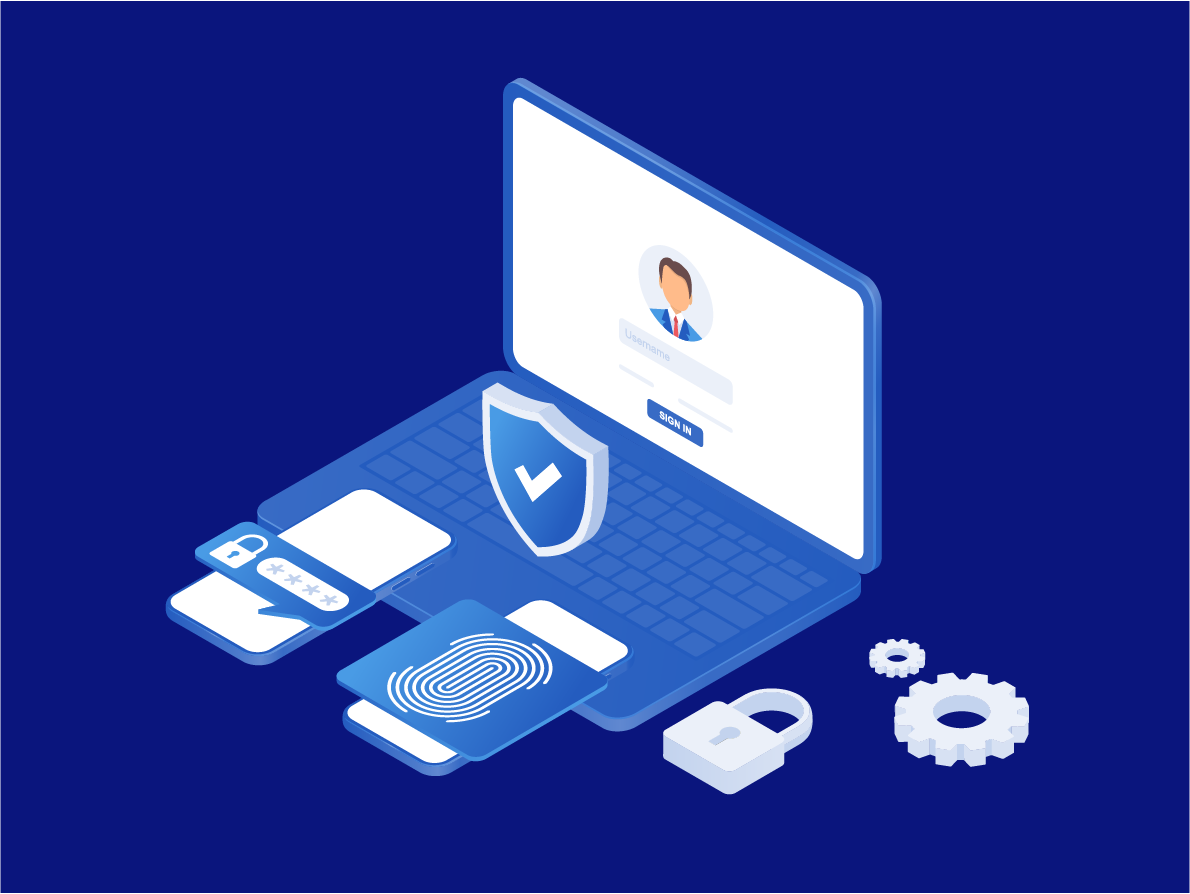
Get started for free with LoginID’s Biometric Authentication Solution on our dashboard or schedule an initial meeting with us to learn more.
The growth of the digital space in the past decade provided limitless opportunities for businesses to expand their operations. E-commerce platforms and social media networks made goods and services more accessible to their clients. In addition, the finance sector has allowed its clients to efficiently cater to their financial needs with the rise of digital banking and financial technology (FinTech) solutions.
Online banking and FinTech applications have become vital tools in the continual digitization of many industries. The benefits of online banks currently stretch to more than just viewing account balances. People can now quickly transfer money between accounts and pay their bills through their mobile phones.
The popularity of digital banking has become apparent in recent years, with almost 197 million Americans using online wallets in 2021. The FinTech industry is also projected to flourish and reach at least $310 billion this year.
However, the monetary nature of mobile banking and FinTech makes it inviting to cybercriminals. Fraud and account takeovers are constantly rising, pushing the sector to find innovative solutions to reinforce its line of protection against bad actors. This includes investing in sophisticated security software and complying with regulations that aim to improve digital identity verification and digital onboarding in the industry.
Threats to Digital Banking and FinTech
Despite continuing efforts to introduce robust cybersecurity innovations, fraudsters can still find a way to exploit the system. Almost $20 billion of financial losses from online payment fraud were recorded in 2021, mainly attributed to the rise of online transactions during the COVID-19 pandemic.
Traditional cybersecurity tricks are still rampant, such as phishing and social engineering. But technological advancements changed not only the business landscape but also allowed criminals to improvise tech-savvy tricks.
This includes malware attacks where swindlers deliver a file or code to cause disruptions to the target's device. There are also potential issues with cloud computing security. Most digital wallets and payment gateways operate on cloud platforms, which can be an ideal cover for cybercriminals when executing their plans.
The eKYC Process
The risks of using financial firms for money laundering and terrorism are some of the founding principles of the Patriot Act of 2001. This statute helped banks formulate stricter guidelines that ensure services are not exploited and used for financial crimes. This also led to innovations in the Know Your Customer (KYC) process, which involves more stern identity verification measures.
However, the pivot to the use of digital platforms required financial firms to reassess the regulation to meet the demand for online services. This resulted in the introduction of eKYC (electronic Know Your Customer) that banks and FinTech enterprises use for digital onboarding processing.
eKYC authentication allows banks to execute remote onboarding. Banks and FinTech companies made the process faster by allowing their clients to use an eKYC portal where they can upload their documents. This helps companies efficiently compare uploaded requirements to government records, ensuring that the individual is a legitimate customer. It will also help them monitor potential risks based on the activities on consumer accounts. This reduces operational friction, which is highly crucial for customer retention.
But despite the benefits of eKYC, the industry is still subject to constant attacks from cybercriminals. Stolen identities, fake signatures, and phishing are still prevalent and have significantly increased the need for a reliable identity proofing solution that organizations can integrate into existing procedures.
How FIDO2 Biometric Authentication Improves Online Security
For decades, knowledge-based credentials have been utilized to protect online accounts. However, the wide use of passwords and PINs has resulted in cybercriminals evolving their strategies, making traditional credentials vulnerable to modern tech-savvy tricks. This led to countless industry leaders pushing for reduced reliance on passwords, especially on complex business types like banks and FinTech.
The Fast Identity Online (FIDO) Alliance was formed in 2013 to promote digital identity verification solutions that decrease the need for knowledge-based credentials. The alliance worked with the World Wide Web Consortium (w3C) to release FIDO2, a new set of specifications that helped improve the online security processes of many enterprises.
One standard under FIDO2 is the Web Authentication (FIDO WebAuthn) specification which allows websites to integrate FIDO-based authentication on various browsers. Meanwhile, the Client to Authenticator Protocol (CTAP) allows external devices and FIDO security keys to be used on websites with FIDO WebAuthn, providing customers with low friction passwordless authentication.
The FIDO2 specifications provide a high level of protection as the credentials used are not stored in a server and stay only on the user's device. Signing in to digital wallets can also be more convenient as most devices, especially smartphones, already have built-in biometric scanners, significantly decreasing the time needed to access the account. FIDO2 also ensures that each website's cryptographic keys are different, making it hard for cybercriminals to track their targets.
Integration of Biometric User Verification Solutions
In an industry where the level of customer trust can make or break a company, investing in dependable cybersecurity measures is a must for financial institutions. Having weak online security can result in extensive economic losses and deteriorate relationships with clients and stakeholders.
Modern online security methods like biometric identity verification are gaining traction as a leading cybersecurity solution across numerous sectors. Apart from significant improvements in online security, biometric authentication allows users to quickly access their accounts without compromising their credentials. Furthermore, fingerprint scanners are hard to exploit, especially as people have unique fingerprints from each other.
Using FIDO2 passwordless authentication alongside eKYC would provide a high level of protection to customer accounts and private servers. Combining the two would in effect bind the customer’s strong digital identity, via eKYC, with strong authentication, via FIDO2. This will mitigate the risks of experiencing data breaches and other financial crimes from the onboarding level to monitoring of client activities.
LoginID's FIDO2 passwordless authentication solution is highly secure, simple to integrate, and reduces onboarding friction. It enables financial institutions, banks, and card issuers to offer clients strong authentication and identity verification across desktop and mobile platforms. LoginID also offers a payment authentication tool that prompts a customer to enter their biometric digital signature to confirm a transaction thereby creating a digital receipt.
To learn how LoginID can equip companies and businesses with the necessary real time fraud prevention tools, get started by registering for a free account.
Schedule an initial meeting with us to learn more. You can also check out our documentation.
Sources:


